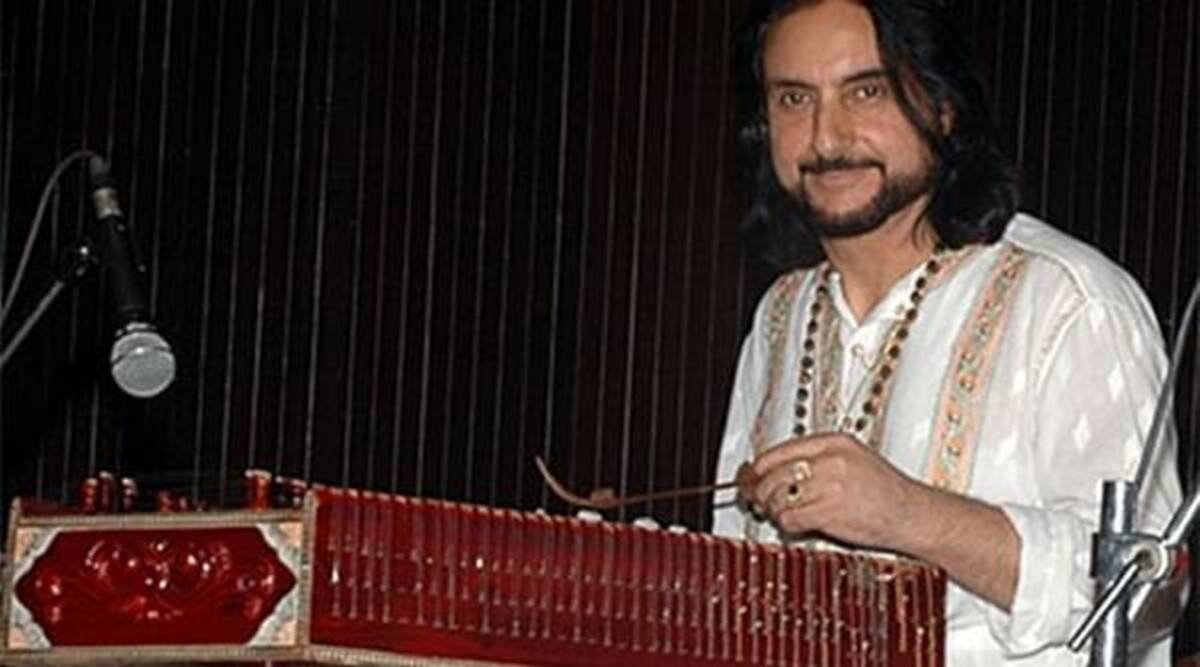 Sopori had formal training in Western classical music as well. The soft-spoken maestro had a highly refined ear for harmony. (File)
Sopori had formal training in Western classical music as well. The soft-spoken maestro had a highly refined ear for harmony. (File)I once asked Pandit Bhajan Sopori about the pain that he carries within, caused by his relinquishment of Kashmir, the home of his sufiayana gharana. His response was a Rumi couplet translated into English: “He said: Tell me what you hold inside it? I said: Pain and sorrow. He said: Stay with it. The wound is the place where the light enters you.”
A gifted child of the village of Sopore, 16 kilometres northeast of the town of Baramulla, passed away at the age of 74 in a Gurgaon hospital when Kashmir once again witnesses a killing spree. News about Sopori’s demise was a shock, and I can hear his santoor’s hundred strings singing lamentably, “The wound is the place where the light enters you”.
He was 10 years younger than Pandit Shiv Kumar Sharma, another santoor maestro who passed away just three weeks ago. No words can explain the irretrievable loss to our musical scene. I was fortunate to have had very close interactions with Sopori for more than a decade during my career in the All India Radio’s archives. He came to Delhi from Srinagar on transfer in the early 1990s and I reached the city from the South in the mid-1990s. He carried agony, while I carried ecstasy. This difference always remained an integral part of all our conversations around music in the years that followed. His sufiyana mind was restless in Delhi’s alien cityscape. He always resided in a jugalbandi of Kashmiri shaivism and sufiyana mausiqi.
There are two major streams of modern santoor playing from Jammu and Kashmir. Both Sharma and Sopori made equally commendable contributions in revamping the hundred-stringed instrument for absorbing the nuances of Hindustani classical music. Both of them brought the incessant presence of individual swaras in santoor by adopting ways from many influences, by adding bridges and changing the timbre of the strings. However, when it came to the alaap, Sopori championed a resonance that echoed a Drupad-style rudra veena. It was deep. I request the readers of this piece to listen to a one-hour track in the raga Gawati played by him which is available on YouTube.
Best of Express Premium
Sopori had formal training in Western classical music as well. The soft-spoken maestro had a highly refined ear for harmony. I never heard him talk loudly in a personal or official space. Once I asked him what he had learnt from Western classical music, and he replied with one word: “Harmony”. He told me that “Indian classical music is solo in nature, but in the West, it’s always an orchestra based on an already written musical text. It’s the harmony that makes their music musical, and here it’s innovation on the stage”. I still remember the day he talked about the two-minute-long solo, Mozart’s Allegro in D Major. I asked him: ‘What is harmony to you?’. He replied with sadness in the eyes, “the Kashmir of my childhood”.
Sopori had the finest of ears for subtleties. The refurbishing of analogue recordings of archival music was on at All India Radio. We were working on the recordings of Pandit Nikhil Banerjee’s sitar. Sopori was requested to listen to a restored 30-minute recording for quality assessment. He reached our studios with his signature smile. He looked like an angel in white. After listening to just two minutes of the digitised recording he asked for the mother tape. After playing back the original he told us that the refurbished one is not giving the tonal character of Nikhilda’s strings. We had the most sophisticated software available at that point in time. But I still remember the warning he raised about the danger in the large-scale digitisation of archival recordings of Indian classical music without listening to the nuances.
Once I was listening to a Carnatic violin concert by Dwaram Venkataswamy Naidu (1893-1964), one of my all-time favourites. I rang up Sopori and asked, “Bhajan ji, do you have 30 minutes with you?” He always had infinite time to spare for music. He came down to the studio, and we together heard an outstanding Hamsadhvani.
When the music was over, he responded in one sentence: “Beautiful minds make strings exquisite”. Bhajan Sopori was a beautiful mind. Let a Kashmiri sufi song sing for our moment of grief: “Mangun tagima ba oush haarai khodaya” (I don’t know the requirements of praying, O My Lord, let my tears speak for me).
S Gopalakrishnan is a writer and broadcaster. He hosts the podcast ‘Dilli Dali’
- The Indian Express website has been rated GREEN for its credibility and trustworthiness by Newsguard, a global service that rates news sources for their journalistic standards.

